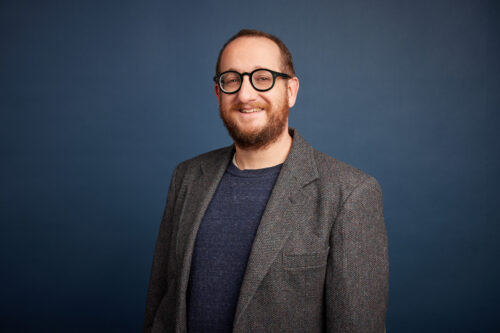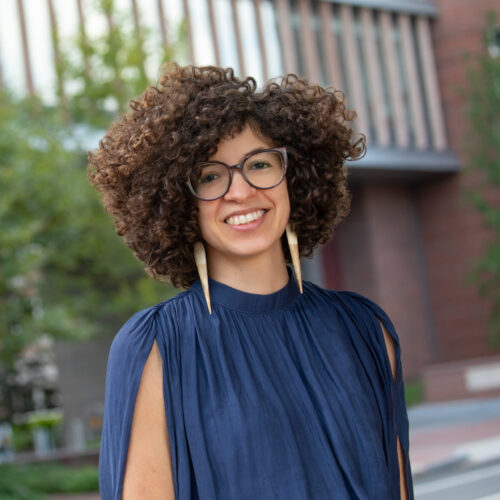Feature
The future of democracy in El Salvador
Does Nayib Bukele’s re-election signal a growing authoritarianism in El Salvador?

Earlier this year voters in El Salvador went to the polls and handed a resounding mandate to presidential incumbent Nayib Bukele, who secured a second five-year term – largely propelled by support for his crackdown on the country’s powerful criminal gangs. His decision to seek a second consecutive term, which many legal scholars criticized as unconstitutional, has raised fears of a growing authoritarian creep in El Salvador. This has been compounded by growing allegations of human rights abuses leveled against Bukele’s anti-gang campaign.
To discuss the implication of Bukele’s reelection and what it means for the fate of democracy in El Salvador Ash Center’s Yanilda González, Assistant Professor of Public Policy at the Harvard Kennedy School, hosted a discussion with José Miguel Cruz, Director of Research at Florida International University‘s Kimberly Green Latin American and Caribbean Center and Mneesha Gellman, Associate Professor of Political Science at Emerson College. We invite you to read highlights below from their discussion or watch a recording of the entire event.
The following excerpts were taken from the discussion and have been edited for clarity.
On the political implication of violence in El Salvador
José Miguel Cruz
“Basically, Salvadorans went from suffering from political violence to criminal violence. I think that’s another condition that is important to mention to a point in which people were exhausted, tired, because at some point El Salvador reached really, really endemic levels of violence. We’re talking about homicide rates of 100 homicides per 100,000 people, which were the highest in the region in 2015… The political system and the party system in El Salvador at some point was seen as unable to respond to the needs of the population in terms of security, also in terms in economic terms, but especially in terms of security.”
José Miguel Cruz
“[The violence in] El Salvador went from active civil war context to what is now a better understood and documented context of the criminal and gang situation in East LA in California in the eighties and nineties, with the arrest, incarceration, and then deportation of those folks to El Salvador… That meant that in this post-conflict, so-called period, there really wasn’t a deep reckoning with the culture of impunity because war impunity translated then to gang impunity.”
This is a tradeoff that is so often presented in so many different contexts from the United States, post-9/11 to countries facing high levels of criminal violence — that you have to give up some amount of freedom, civil liberties, human rights in order to have safety.![]()
Yanilda María González
Ford Foundation Assistant Professor of Public Policy
Understanding the impact of soaring levels of incarceration
Mneesha Gellman
“The 70,000 plus people who have been incarcerated just in the last two years under the state of exception is in addition to the 30,000 people previously incarcerated in El Salvador — making it over a hundred thousand people in the state currently incarcerated, which is close to 2% of the population. El Salvador has become the highest incarcerating percentage wise country in the world, overtaking the U.S…. [A]nyone can be denounced without corroborating evidence, without proof means that there are tens of thousands of people who are not guilty of any format, form of gang affiliation in Salvador and prisons right now.”
Yanilda González
“This is a tradeoff that is so often presented in so many different contexts from the United States, post-9/11 to countries facing high levels of criminal violence — that you have to give up some amount of freedom, civil liberties, human rights in order to have safety.”
Unpacking the numbers behind Bukele’s enduring popularity
Mneesha Gellman
“And then the fact that he [Nayib Bukele] was polling really high in popularity. He got 83% of the vote — again, only half of eligible Salvadoran voters voted for him. So the way that numbers are used, the way that data is used can create an impression of ‘everyone loves him.’ I did a bunch of interviews in January leading up to the election where people were saying, ‘well, yeah, I’m going to vote for him because the other candidates aren’t going to win and it wasn’t better under them.’ These are people trapped in difficult voting circumstances, which some of us here in the U.S. might be familiar with, where there are not good options, and we may hold our nose and vote for someone in a certain way.”
José Miguel Cruz
“And in order to continue functioning in the same way, the model must keep arresting and capturing more and more people in those systems at the same time in which the Salvadoran government is not making, not increasing investment in education and social services and social programs. It’s increasing the budgets in security forces.
That’s the reality right now considering that the structural factors of violence crime in El Salvador are still there…Those factors are going to basically deepen in the next years with more people joining the employment age without opportunities, without quality education.”

